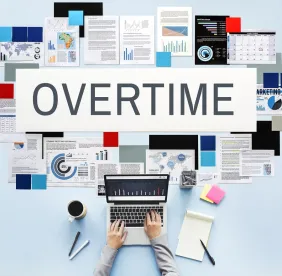Twenty-one states, led by Texas and Nevada, filed a lawsuit in the Eastern District of Texas on Tuesday challenging the U.S. Department of Labor’s (DOL) overtime exemption rule changes which passed in May and are set to take effect on Dec. 1. The same day, more than 50 business groups, including the U.S. Chamber of Commerce, National Federation of Independent Business, and National Retail Federation, brought their own separate legal challenge in the Eastern District of Texas against the overtime rule.
The rule, which raises the minimum salary threshold required to qualify for the Fair Labor Standards Act’s (FLSA) “white collar” exemption to $47,476, would require employers to pay overtime to any salaried “bona fide executive, administrative, or professional” employees earning less than this amount per year – which is double the current threshold of $23,660. Furthermore, the rule implements an automatic indexing mechanism that would increase the threshold exemption salary amount every three years starting in 2020.
Both lawsuits argued that the new regulations are an overreach by the DOL and the executive branch under the Administrative Procedures Act. The states’ lawsuit argues that the DOL’s rule disregards the text of the FLSA and imposes “a much-increased minimum salary threshold that applies without regard to whether an employee is actually performing ‘bona fide executive, administrative, or professional’ duties.” The business group lawsuit voiced parallel concerns by arguing that the DOL is essentially favoring the bright line salary threshold in lieu of analyzing the duties considerations.
In the lawsuit, the states also argue that the DOL’s rule could mean significant increases to employment costs for many state and local governments, in addition to private entities. The business groups’ lawsuit similarly argued that such costs would burden businesses and could ultimately force employers to reduce services and potentially lay off employees to comply with the rule. The business groups said that losing the overtime exemption for “frontline executives, administrators and professionals” would cost employers the capability to successfully manage their workforces. The groups argued that employers will be forced to reclassify millions of employees as hourly instead of salaried workers, a change that would inflict constraints on their work hours “that will deny them opportunities for advancement and hinder performance of their jobs — to the detriment of their employers, their customers and their own careers.” The rule may also force employers to demote salaried workers to hourly positions and to create more part-time jobs.
Additionally, both lawsuits challenged the automatic indexing mechanism that would increase the threshold exemption salary amount every three years in part because the automatic increase would not reflect the country's economic conditions.
The state lawsuit is Nevada et al. v. U.S. Department of Labor et al., case number 1:16-cv-00407, filed in the U.S. District Court for the Eastern District of Texas. The other states that signed on to the lawsuit are Alabama, Arizona, Arkansas, Georgia, Indiana, Iowa, Kansas, Kentucky, Louisiana, Maine, Michigan, Mississippi, Nebraska, New Mexico, Ohio, Oklahoma, South Carolina, Utah and Wisconsin. The business group lawsuit is Plano Chamber of Commerce et al. v. Perez, case number 4:16cv00732.



 />i
/>i

